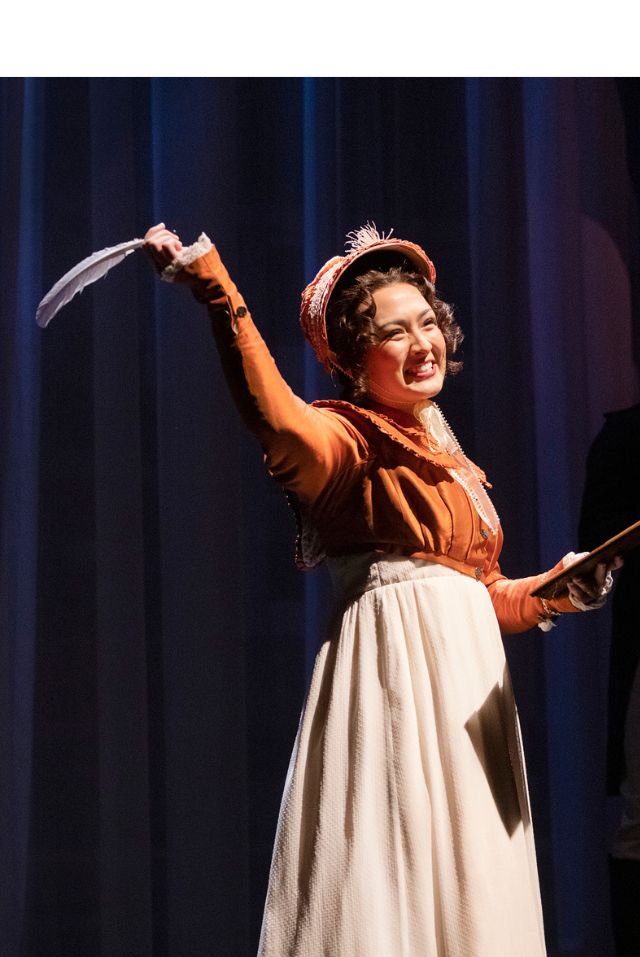
Review: Second play in Jane Austen trilogy provides light holiday fare
By Kathy Allen. Originally published by the Arizona Daily Star.
The drama isn’t always upstairs at Pemberley, the elaborate estate where Darcy and his wife Elizabeth live.
It’s definitely downstairs, in the servants domain, as well. And that’s where the action takes place in Arizona Theatre Company’s “The Wickhams: Christmas at Pemberley.”
This is the second in a proposed trilogy of plays by Lauren Gunderson and Margot Melcon. The plays follow life after Jane Austen’s “Pride and Prejudice,” which ended with the marriage of Elizabeth Bennet and Mr. Darcy, the proprietor of the elaborate Pemberley estate.
Last year, Arizona Theatre Company staged the first in the trilogy, “Miss Bennet: Christmas at Pemberley,” which concentrated on the Bennet sisters and saw mousy Mary find love.
“The Wickhams,” directed with a knowing hand by Veronika Duerr, focuses on the servants who toil away downstairs doing laundry and cooking and gossiping.
Lydia, the squealing, simply silly Bennet sister who married the rogue Wickham after he whisked her off and put the Bennet family’s reputation at stake, is there without her husband. Just as well, Darcy demands he never again step foot on Pemberley.
Ah, but Wickham has his way of weaseling in where he isn’t wanted.
The story concentrates on the romance between Brian, a footman at the estate, and Cassie, a new maid (Seth Tucker and Emily Mohney, impressive as a couple falling in love), as well as the Wickham’s troubled marriage. But we also get glimpses of the upstairs folk when they come downstairs.
In “Pride and Prejudice,” Lydia is as unbearable as her nervous, shrill mother. In “The Wickhams,” Lydia starts out as silly as ever, but evolves into a Regency-era feminist. Maya Encila made the journey from annoying to inspiring believable and great fun.
Alex J. Gould as a drunken Wickham, who bursts through the downstairs door in search of Lydia and her money, was smooth and obnoxious. Kind of perfect for the character.
The head of the household staff, Mrs. Reynolds, brought much of the humor, and Amelia White did the character justice.
Unlike the first sequel, “The Wickhams” doesn’t have the sharp wit so inherent in Austen’s characters. There were whispers of farce in some scenes — which Austen would likely be unhappy about. The first act is heavy with exposition — and some over-the-top acting. The actors seemed to settle in for the second act — chalk it up to opening night nerves.
Downstairs folks are certainly fun, but we wish we saw more of the upstairs ones, as well.
Nevertheless, “The Wickhams” is entertaining, light holiday fare, and we could sure use some light these days.